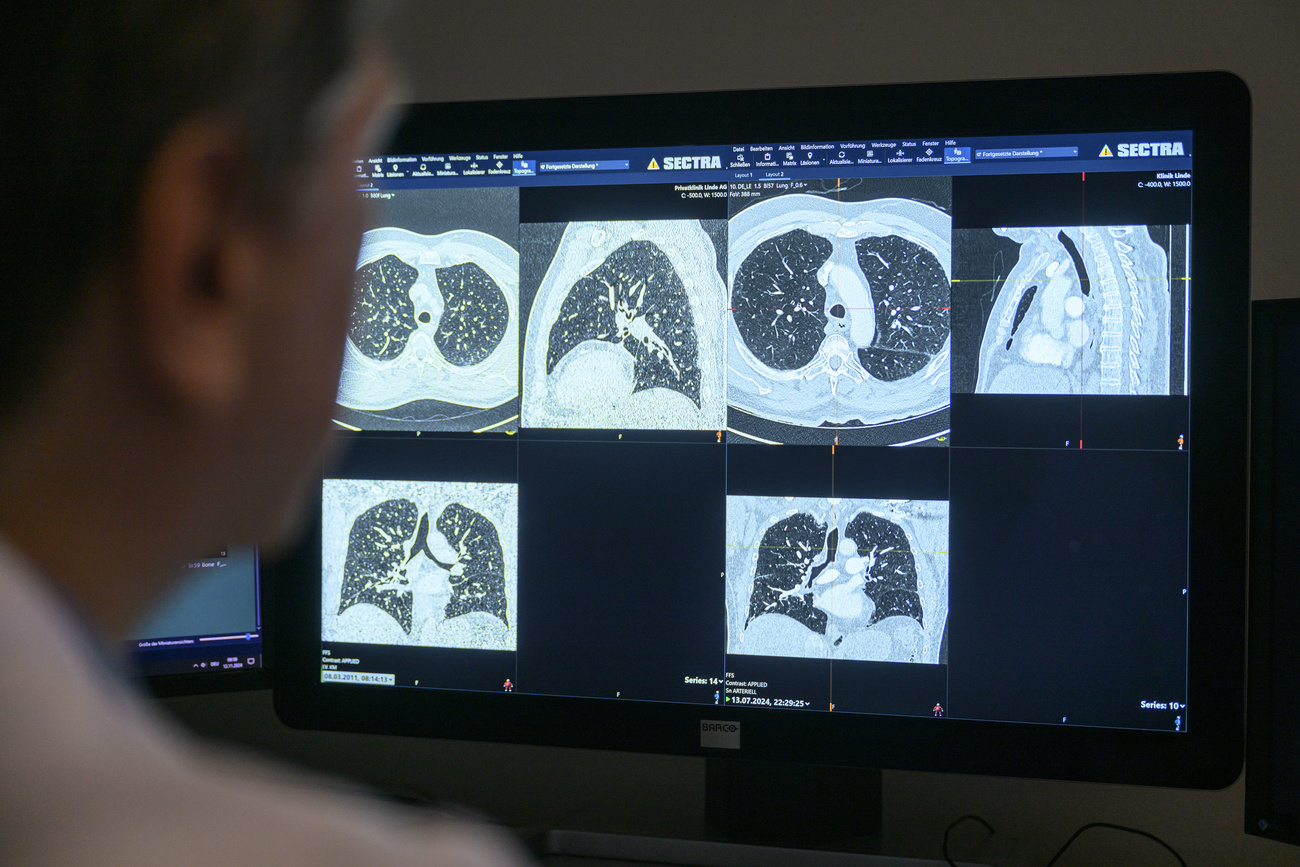
Media: Swiss medical services done abroad are billed at Swiss rates

In Switzerland, medical services carried out abroad are billed at Swiss rates, despite costing less due to being outsourced, public broadcaster RTS reports.
In principle, such services should not even be covered by the Swiss system of mandatory health insurance. But the law could be set to change, RTS writes.
Two cases of such outsourcing have been flagged by Swiss media in the space of a week. The first concerns the private Hirslanden group, which operates 17 hospitals across the country. Medical images done in the group’s clinics, such as MRIs, X-rays and other scans are sent abroad to be analysed – in France, Germany and Hungary – at a lower cost. However, they are billed at Swiss rates.
Meanwhile, Medgate, the main player in the Swiss telemedicine sector, was also singled out by newspapers in the CH-Media group: they reported that some of the group’s doctors are employed in Germany and Spain, and soon in France and Italy.
Contacted by RTS, the Federal Office of Public Health (FOPH) said that “in principle, services are only reimbursed if they are done in Switzerland and by a service provider authorised to practise in Switzerland”.
But this only applies in principle: telemedicine done abroad is not explicitly prohibited. Medgate, which has all the necessary authorisations, tells RTS that “[its] basic telemedicine services […] for patients in Switzerland are considered to be provided in Switzerland and are billed legally”.
+ Swiss Abroad want access to Swiss health insurance
However, the practices have raised concern in santésuisse, the umbrella organisation of Swiss health insurers. Verena Nold, its director, believes that such services done abroad should only be reimbursed in emergencies or exceptional situations. Moreover, she says, insurers are virtually powerless in this area. “Invoices only show the name of the hospital or doctor’s surgery, and you can’t see where the service was provided,” she says.
The revelations come as Swiss parliamentarians agreed in spring that medical services provided abroad should be reimbursed, a vote which has opened the door to future changes in the law.
In the meantime, however, legal uncertainties in the commercialised world of healthcare continue to create grey areas which each player tries to interpret to its own advantage.
Adapted from French by DeepL/dos
This news story has been written and carefully fact-checked by an external editorial team. At SWI swissinfo.ch we select the most relevant news for an international audience and use automatic translation tools such as DeepL to translate it into English. Providing you with automatically translated news gives us the time to write more in-depth articles.
If you want to know more about how we work, have a look here, if you want to learn more about how we use technology, click here, and if you have feedback on this news story please write to english@swissinfo.ch.

In compliance with the JTI standards
More: SWI swissinfo.ch certified by the Journalism Trust Initiative

























You can find an overview of ongoing debates with our journalists here . Please join us!
If you want to start a conversation about a topic raised in this article or want to report factual errors, email us at english@swissinfo.ch.